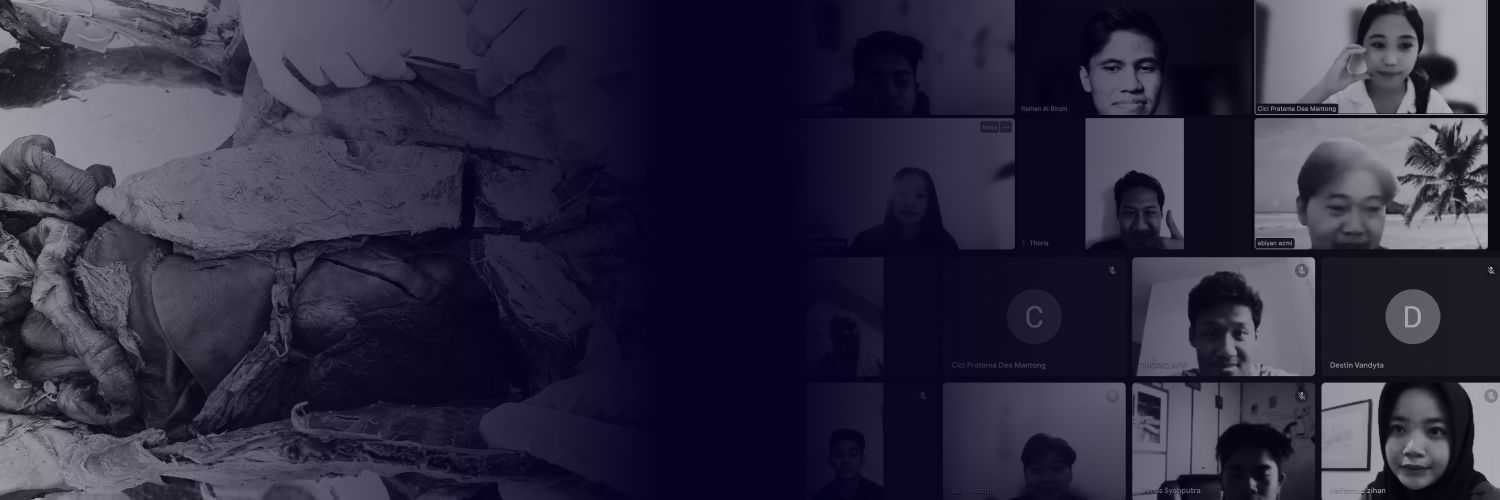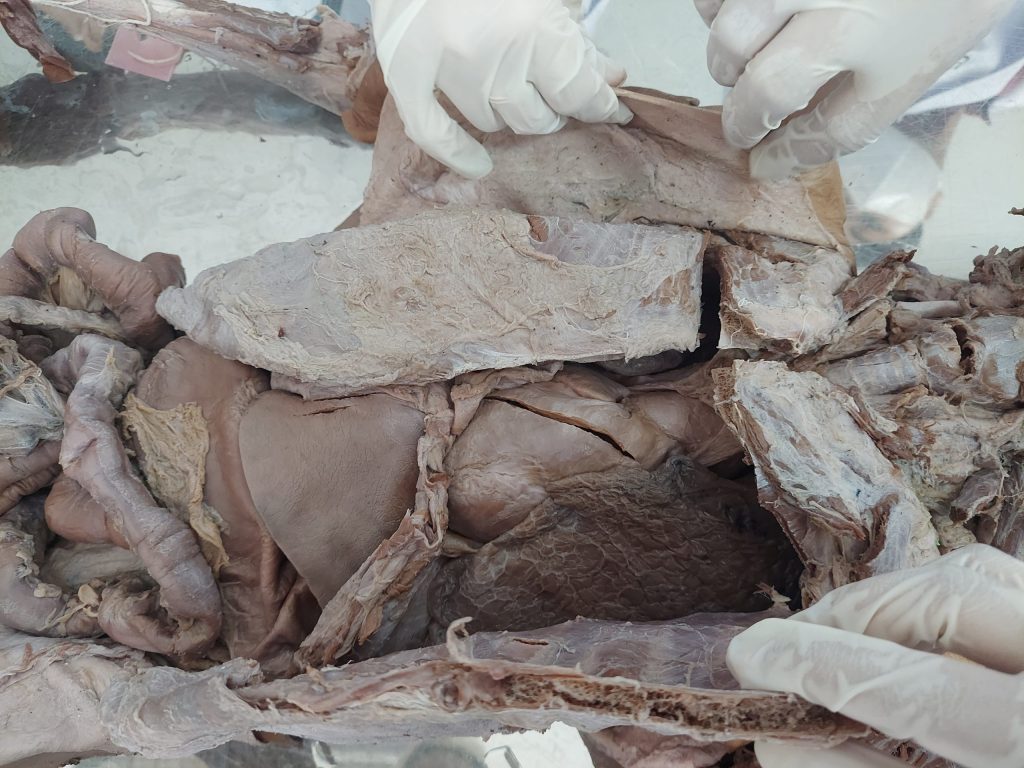In the second week of the Respiratory System (RS) block, there were plenty of activities that I took along with my friends in the Respiratory System group. Those activities are listed below.
- Tutorial on Monday, 19 September 2022.
- Anatomy laboratory visit on Wednesday, 21 September 2022.
- SEKAR (lecture) on Thursday, 22 September 2022.
- Tutorial on Friday, 23 September 2022.
- Tutorial on Saturday, 24 September 2022.
From those activities, we learned and explored so many insights regarding the respiratory system. Therefore, I will share my learning progress on each activity in this post.
Monday: The Learning Issues
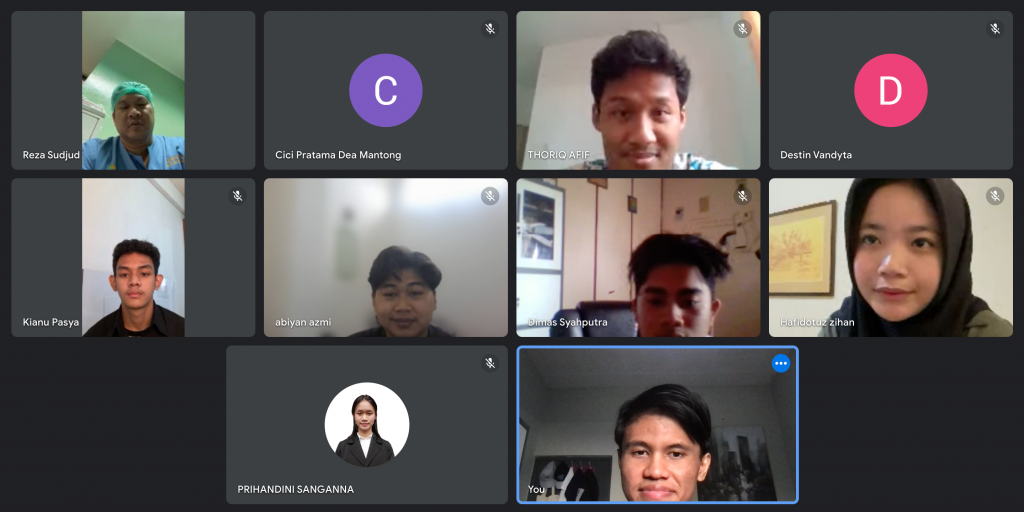
On this day, we as group 8 of the RS block, did an online meeting via Zoom Meeting with our tutor or supervisor doctor who is Dr. Reza Widianto Sudjud, dr., Sp.An-KAKV., KIC., M.Kes. In general, it was a short meeting to discuss the learning issues that we’re gonna present later. The learning issues should come from the previous meeting, which is the journal review meeting.
Everyone was confused at first regarding the learning issues that we need to decide on. Predominantly, suggested that we need to learn about the basic science of the respiratory system first. However, shortly after that, dr. Reza suggested that we shouldn’t learn in that way because after students completed the basic science only without learning other topics (e.g., disease, health issues), most students will forget about it. Hence, we need to learn basic science while also learning about other topics, such as disease and health issues. In general, we need to connect every disease that we have to understand based on the Standar Kompetensi Dokter Indonesia (SKDI), to basic science.
Eventually, we decided to take pharyngitis and laryngitis as learning issues. So, in the next meeting, we have to present those diseases and also basic science that correlates with those diseases.
Wednesday: The Awaited Moment!
On this day, we eventually did a laboratory visit, specifically an anatomy laboratory visit. It was such an awaited moment since the Covid-19 pandemic that prevented us, especially the 2021 students, to visit a real laboratory at the University.
I’ve been always wondering about one thing: is it true that every medical student in every University will take a look at a cadaver?
And, I think the answer is yes, especially for the medical student of Universitas Padjadjaran.
Yes. We literally took a look at a real cadaver throughout the anatomy laboratory visit. I’m so grateful for being one of the medical students that can see a real cadaver and also thankful to dr. Putri Halleyana, M.Kes., who provided the laboratory visit.
From the cadaver, we learned and explored so many things about the respiratory system in our body. I also realized that the anatomy from the books that we learn is mostly different from the cadaver. For instance, the apex of the lung that we saw in the textbook is slightly sharper than we saw in the cadaver.
In addition to the cadaver that was provided by dr. Putri, we were also provided with exercises on the LiVE Unpad and a quiz after the laboratory visit. I think those exercises and a quiz were really helpful for us to review the anatomy that we learned from the cadaver.
Thankfully, we didn’t get any serious problems throughout the laboratory visit. However, we were kinda confused a little bit regarding the digital anatomy that was also provided by dr. Putri. I also got a mediocre score on the quiz after the laboratory visit because I was late to answer the question. Therefore, those little problems are gonna be an evaluation for us to improve on the next laboratory visit along with other activities.
Thursday: It’s SEKAR’s Time!
On this day, all of the students in the block of Respiratory System (RS) met with a professor from the Department of Pediatrics in the SEKAR activity, who is Prof. DR. Heda Melinda N., dr., Sp.A(K)., M.Kes. She brought up a topic in the lecture about Pertussis in Children.
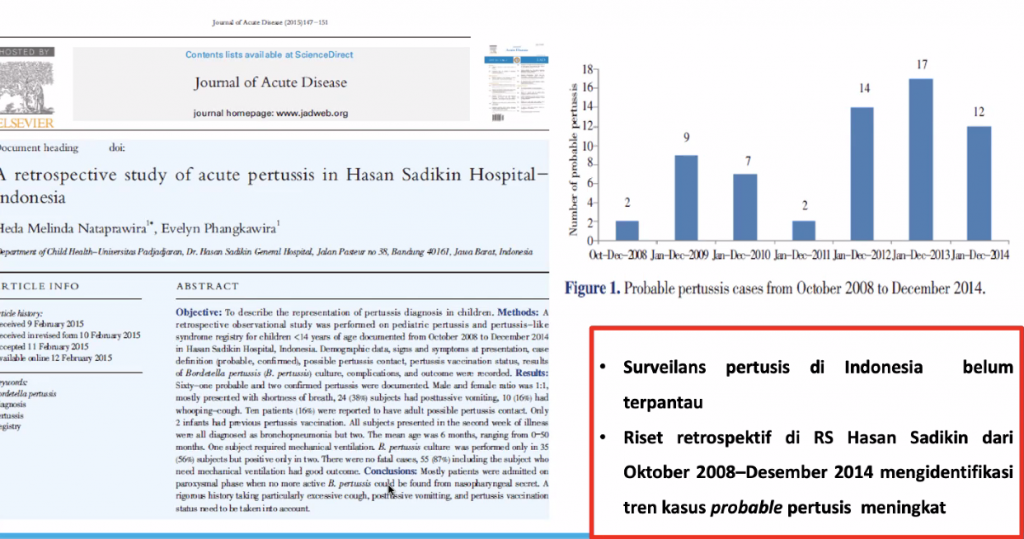
It was an insightful lecture about pertussis, especially in children whereas the diagnosis confirmation of pertussis is quite difficult because for some reason, such as the laboratory method for detection of Bordetella pertussis is not fully established yet. Hence, I think it’s really important for us to develop a solution for that issue. I also took a note for the lecture to review it next time. You can see my note here.
On the other side, throughout the SEKAR activity, there were some problems that we need to evaluate for the next SEKAR along with other activities. Since this activity was held via Zoom Meeting, many students, including myself, were off-cam throughout the activity. It kinda disappoints Prof. Heda and for that reason, we only get a little time for the Q&A session after the lecture. Indeed, I was on-cam for a while when Prof. Heda gave the lecture, but the network signal wasn’t quite good. So, I eventually turned off the camera. Many other students also probably had the same issue, which is a bad network signal in Jatinangor. Perhaps this activity could be held by an offline meeting at the university.
Friday: First Learning Issues Presentation
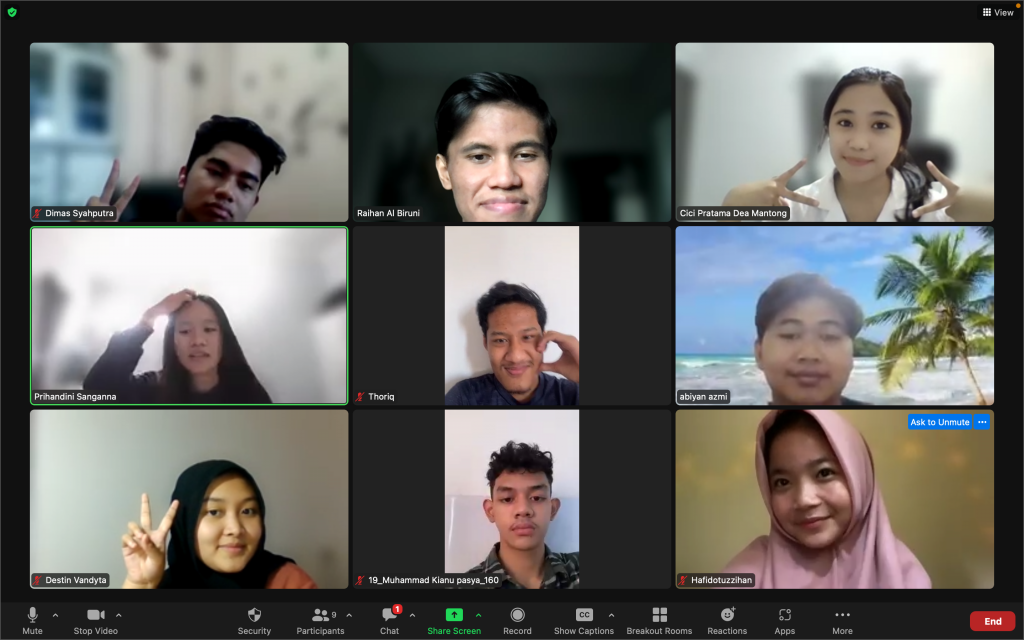
After we made the learning issue, which is a concept map, we presented it to each other through a meeting, though we made it in a single shared concept map so that everyone could look at each other concept map. This meeting was actually supposed to be held with dr. Reza who is our tutor, but he couldn’t attend the meeting because apparently, he got another activity. We then kept going with the meeting to present and discuss the concept map regarding the learning issue.
Indeed we were quite confused at the time because there was no dr. Reza who can guide and advise us, even though dr. Reza rarely gives us any advice. Overall, it wasn’t a problem at all instead, it may trigger us to be more determined.
Saturday: Second Learning Issues Presentation
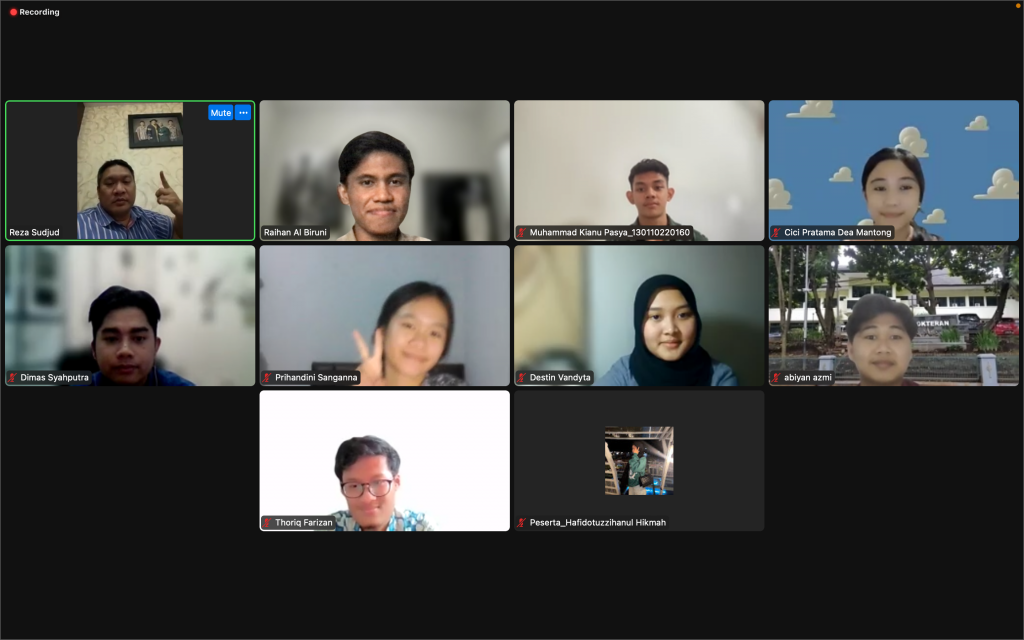
On the last day of the second week, we continued our learning issue presentation that has been done in a half yesterday. Doctor Reza attended along with us in this learning issue presentation, which was held through a Zoom Meeting. With the presence of dr. Reza, we got some advice or feedback from him at the end of the meeting.
First, we need to add more images to the concept map that we made for the presentation, though there were quite many images. In addition, we also should recreate an image if it’s a table or diagram. Secondly, we need to make individual concept maps regarding the learning issue so that we could understand the learning issue completely, not just a part of it.
With that advice, I think we could improve our understanding to be more comprehensive.
